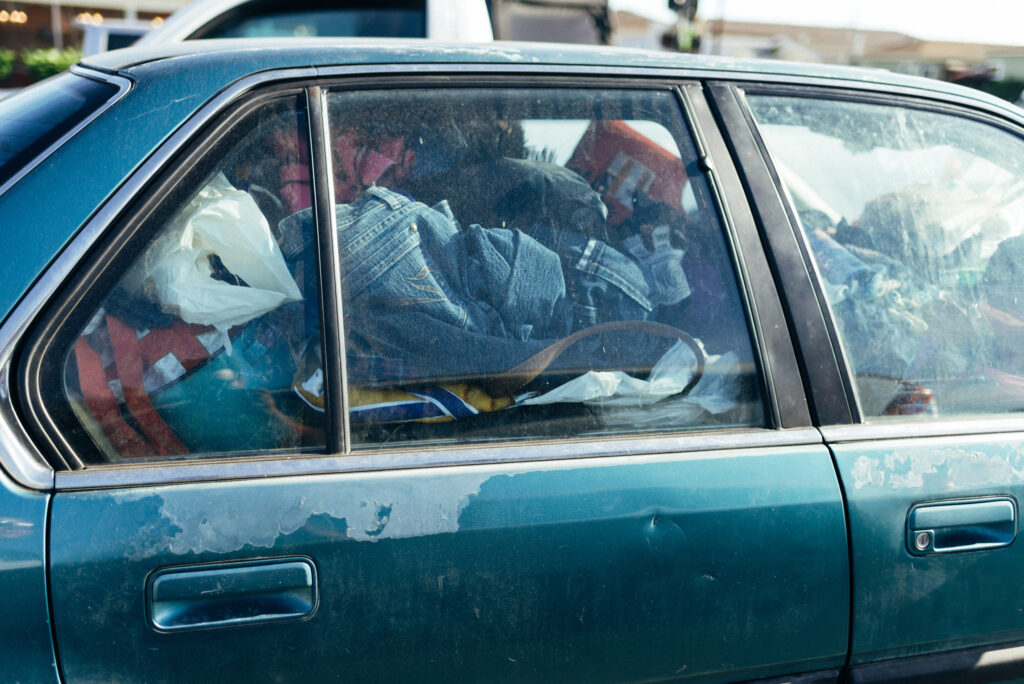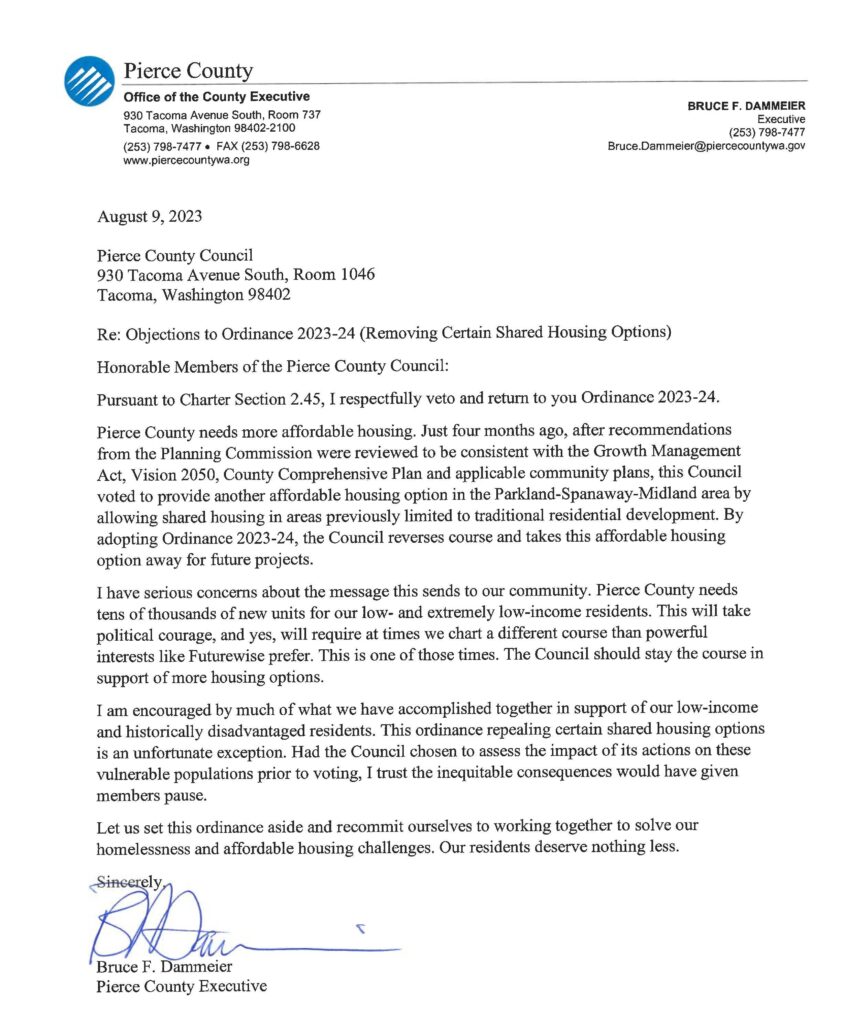
I did something this week that I rarely do – I vetoed a piece of legislation that came to me from the Council.
In the nearly 7 years I’ve held this office I have only used my veto on 7 occasions, including this week’s veto.
So, why did I do it?
Context is important, so remember that housing affordability and chronic homelessness are two significant challenges facing our community. We need more than 50,000 affordable homes for our low- and lower-income neighbors. Additionally, hundreds of people are dying on our streets trapped in addiction and untreated mental illness.
Last fall, the Council adopted a wide range of updates for our residential development regulations and created several new types of uses and housing types including shared housing. (I recently visited a “shared housing” home in Lakewood with our Director of Human Services, Heather Moss).
This past Spring, the Council further expanded the “shared housing” use in the Residential Resource (RR) zone within the Parkland- Spanaway-Midland communities.
While RR zones have some sensitive areas, any project on any property would have to ensure the environment is appropriately protected and all regulations were met. Additionally, this revision allowed our Pierce County Village to move forward on the preferred site. I have blogged about the Village previously, but it is an innovative community-focused model for chronically homeless. It has proven very effective in Austin, Texas in helping people get well and take back control of their lives – both by working and paying rent. Our Village proposal includes a public-private partnership with the Tacoma Rescue Mission (TRM).
Not surprisingly, but disappointingly, Futurewise appealed this expansion to the Growth Hearings Management Board (GMHB). Our attorneys believe we appropriately followed the process in adopting these changes and are not overly concerned about the appeal.
The Council, however, felt they needed to take action. First, they delayed the effective date of the development regulations amendments they adopted this spring to December 2023. This ordinance precluded any further applications before the GMHB ruled on the appeal and I signed it. So far, so good!
Then last month Council voted to repeal both that ordinance as well as the underlying ordinance entirely, also with an effective date in December. I believe these actions and the repeal are bad for our community, so I vetoed it. Furthermore, I had significant concerns about a skipped step when the Council passed this repeal.
At a time when we desperately need more low-cost housing options, going backwards is a problem. Furthermore, while the Village is technically a vested project the repeal would make it much harder for our partner TRM – both before the Hearing Examiner and in their private fundraising. My concerns were echoed by testimony from both Michael Yoder and Michael Mirra – two long-time local leaders on homelessness and affordable housing.
Lastly, I’m disappointed that the Council did not comply with their own requirement for an Equity Note for all proposed legislation. I believe a thorough assessment of the repeal’s impact on marginalized communities would have given the Council reason to reconsider.
In case you are interested in seeing the full letter I sent to Council, I’ve pasted it below for you.

The Pierce County Charter (section 2.45) speaks to what can happen next. The Council can take no action and let the veto stand, or they can schedule a vote to override the veto within 30 days. I’m hopeful they will take the time to pause and wait and see what the Growth Management Hearings Board has to say before they act again. Then we can address any real concerns.
So, there you have it.
Thanks for reading,

Bruce
